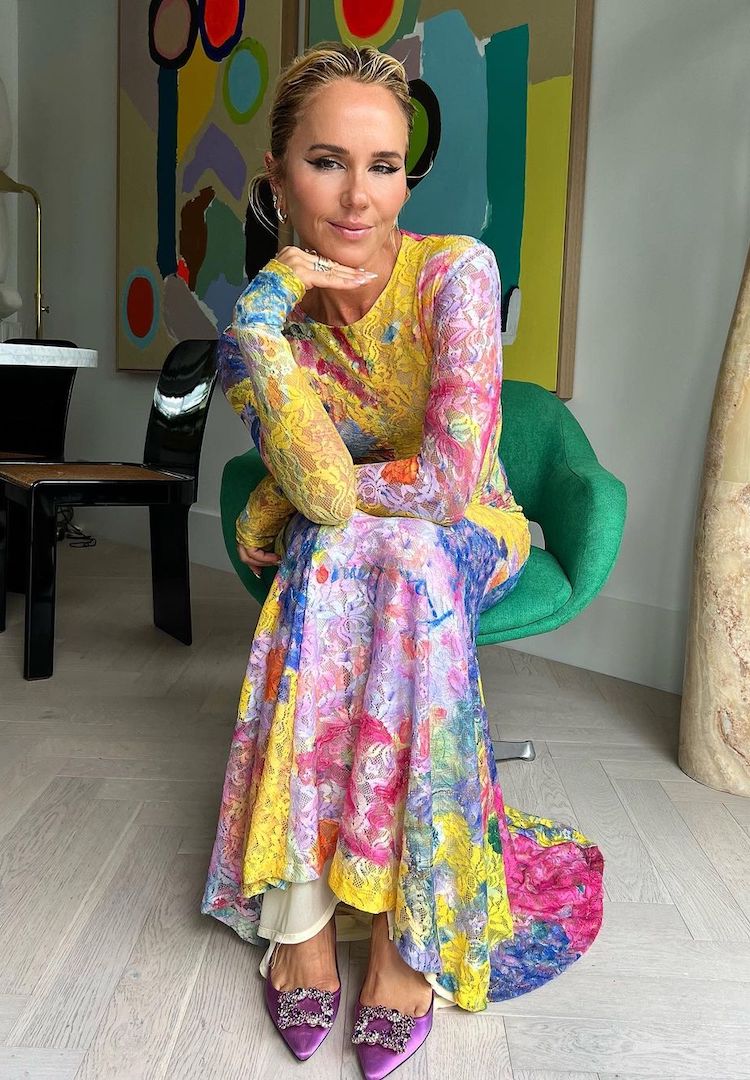Attachment theory improved my relationships, but it also helped my work anxiety
PHOTOGRAPHY BY JASON HENLEY
WORDS BY SARAH PHIPPS
“Awareness is important; knowing your attachment style and how it guides your behaviour at work. Also, know that it’s not unfixable if you have an insecure attachment type.”
I often think of all the mundane yet important things no one told us we’d have to figure out as adults. There are so many things that I was never taught but I think that’s because my parents were just winging it, too.
Tax refunds, the best way to wash linen sheets, how to navigate romantic relationships – all things about which I was given advice, but have still yet to master (I’m still counting the days until I’m thrown into prison for accidental tax fraud).
Want to read more about how others navigate the world? Try our Life section.
Fortunately, we also live in a time where self-education is extremely accessible. My first significant breakup hit me hard, and as the one who was dumped, I immediately fixated on how my own behaviour had shifted the dynamic.
Where had I gone wrong? Could I have been a better girlfriend? Who would keep the air fryer? After two weeks of crying to Sufjan Stevens and divvying up kitchen appliances, I took to Google to seek the solace that only the internet can provide when you are too broke for therapy.
Several hours after falling into a corny breakup article rabbit hole, I stumbled across something useful: attachment theory. As you’re probably already aware, it’s a popular psychological concept that denotes two main attachment styles – insecure, and secure. These are formed during childhood, and the idea is that as children we moved towards our caregivers in times of distress. If our needs were met, we gained a sense of security and fell into a secure attachment style.
Those who weren’t so lucky would fall into the insecure attachment type. As someone who didn’t have their needs met by one half of their parental unit as a child, and was once described by a teenage boyfriend as a “clinger” (real nice guy), I felt I fell into the latter, insecure category. Trying not to view it as a romantic death sentence, I made some time for the self-work and awareness I knew I’d need in order to succeed in future relationships.
Several years later, I had my first foray into professional work. It was nothing like I’d expected – suddenly things that were never important were significant, fragile facets of my life that might influence the direction of my future as a whole.
My job required me to be responsible for money that wasn’t my own. I felt nauseous every time the phone rang (was it a client calling to tell me I’d fucked up?) and I found myself messaging my boss constantly for validation and reassurance.
I felt childish and unsure, although on some level I knew I was a completely capable and intelligent young adult. I was objectively good at my job, I had performance evaluations that were evidence of this, and yet every meeting request from my manager had me sure I’d be filling in a JobSeeker application by the weekend.
How my attachment style was impacting my career
Eventually, something had to give. I found myself going through old journals and writing from the breakup, and tried to come up with a new way of thinking. Was my anxious attachment style illuminating the new issues I was discovering in my professional life? I tried to take on a better understanding of why I was feeling this way and found it was self-revealing and humbling in a way that better equipped me to deal with work without unhealthy levels of stress.
Alanah Jenner, a provisional psychologist and research assistant at the University of Queensland, agrees with my theory, too. “Research on adult attachment has mostly focused on how it plays out in our most intimate relationships, however, there is increasing attention on its implications for our relationships at work, too. Attachment styles predict the quality of our interpersonal relationships and our psychological wellbeing, both within and outside of work.”
“Those with high attachment-related anxiety are often hypersensitive to signs of rejection, fear that they will be rejected or let down, and have a compulsive need to be close to others (which, ironically, can result in others wanting more distance from them). We might see this translate to behaviours at work like avoiding conflict (because it may lead to rejection), fearing that colleagues will let them down, and seeing innocuous behaviours as uncivil,” she explains.
In relation to how my own behaviours manifested at work, this line of thinking absolutely makes sense. In my first year of work, I was overly sensitive to criticism; if someone dared make a ‘suggestion’ on my Google Doc, it was their way of telling me I’d done everything wrong.
A lack of response to a Slack message was perceived as me asking for too much help and in turn, I was obviously being ignored. Of course, none of this was true, but the awareness that my anxieties existed on a scale that was dissimilar to people who were better adjusted provided the comfort and tools to try to overcome these irrationalities.
Alanah says that for those with insecure attachment styles, it’s not all doom and gloom. “Awareness is important; knowing your attachment style and how it guides your behaviour at work. Also, know that it’s not unchangeable if you have an insecure attachment type.
“While they are relatively fixed over our lifetime, there is evidence that they can change with exposure to new attachment-related experiences. If you are avoidantly attached and are aware that you may be prone to avoiding closeness with others, you can try to build better relationships with those around you by allowing yourself to be vulnerable and trusting.”
If you’re feeling insecure in any aspect of life and are looking for confidence, you surely won’t find it by hiding from yourself or reasoning you’re not worthy of it; you can negate the need for reassurance by building awareness of yourself, your emotions, and a connection to your choices that feels deeply honest and genuinely enthusiastic. Not to sound like a teen Netflix movie, but you only get one life. What emotion do you want to fuel it?
For more on how attachment styles impact your work life, try this.










